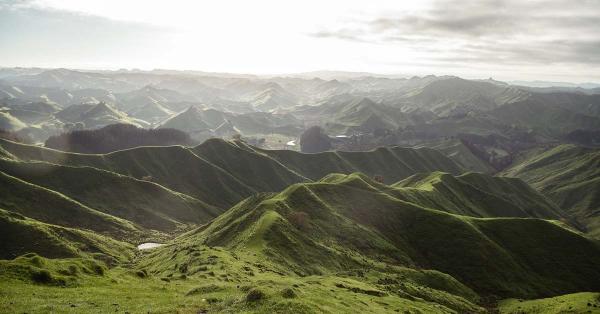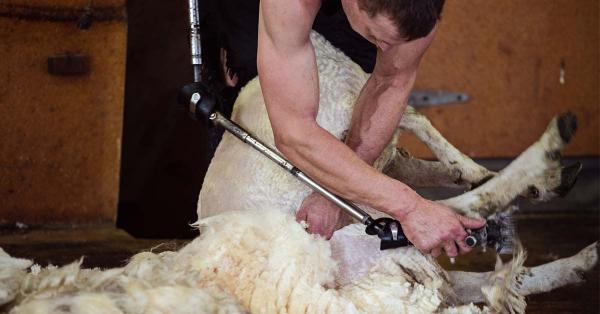A Rangitikei couple has used their initiative and entrepreneurial spirit to combine their strong wool and family story with social media marketing, to create a new business they can run from the farm. Colin Williscroft reports.
Sam and Sophie Hurley had for a while been thinking about finding new avenues for their wool, and a couple of years ago they saw an opportunity.
Today, Honest Wolf-branded products are being bought by people across the country and around the world.
Proof that inspiration can be found almost anywhere if you’re looking for it, the Hurleys found theirs in New Zealand’s ban on single-use plastic shopping bags.
“We saw an opportunity where our wool could fill the gap in the market,” Sophie said. “They obviously needed a replacement. A reusable shopping bag.
“So our first product idea was the casual shopper, a shopping bag replacement that was reusable and sustainable.”
They’ve since expanded the range of products, but the underlying driver behind what they are doing is to add value to the sheep and beef they produce.
“We’re trying to move away from the commodity that quite often our meat and wool gets lumped into,” Sam said.
“We want to break that down and essentially add value to every kilo of wool that we can.”
Sam and Sophie are the third generation of Hurleys to farm Papanui Estate, the family operation started by Sam’s grandfather Ray in the 1950s.
Today Papanui serves as an umbrella to four farms in the Rangitikei/Manawatu area. Combined, it’s just over 5000 hectares of sheep breeding, and a lamb and beef finishing operation.
“We run about 25,000 ewes and have a cattle trading policy, so we buy anything from yearlings to two-year-olds, then take them up to finishing weights on our finishing properties at Cheltenham and Ohingaiti,” Sam said.
He and Sophie live on the breeding farm on Turakina Valley Road outside of Hunterville, while his parents Andy and Anna, and his brother Jack and his fiancé Emma, look after the finishing side of the operation.
The longstanding family connection to the land they live and work on is an important part of how they market the everyday consumer products they sell online under the Honest Wolf brand.
“People like the story behind the wool,” he said.
“They like the family history, that we’ve been farming here for 70 years and through those years there’s been a lot of change around farming practices and improving our environmental position, which we’ve been part of. It builds on the whole thing.”

Sophie and Sam Hurley, with Harry, 11 months. The Hurleys have built a business they can run from the farm. Photo: Colin Williscroft
Sophie, who comes from a Wanaka farming family, says the “honest” part of the brand comes from their products being made out of honest products, like the wool they produce on-farm and NZ leather.
“We’re pretty upfront with how we farm, that it’s sustainable, environmentally-friendly and we follow good animal health practices,” she said.
“The wolf part is trying to be a leader among the pack in ways of diversifying, using wool in the hope that others might follow with what they produce on their farms.”
The idea is to try and meet some of the challenges currently facing the strong wool industry by adding new and exciting brands and products.
“We wanted a name that was a fashionable brand to help reach urban consumers,” she said.
“To help grow the story of wool and get fashionable products out there to consumers who will then learn the benefits that come with wool, in the hope they buy more wool products.”
They started talking about the business while on their honeymoon in 2018 and because of the move to ban single-use bags from supermarkets and other retailers, decided to begin their business with their own solution.

Not only is their wool equivalent sustainable and reusable, Sam says it has other benefits too.
“Because of wool’s natural qualities we thought it would be a good fit. It thermo-regulates, so you can put something cold in it and it will keep it cooler for longer. Or you can put something hot in it and it maintains that temperature for longer,” he said.
“It takes us an hour to get to town for groceries, so we’d thought about that advantage.
“It’s also biodegradable and made from a renewable resource, so it ticked a lot of boxes for us in what we thought a product in the modern world should represent.”
On top of that it’s extremely durable and can carry a lot of weight in comparison to other options, with their bag holding about 10kg.
Sophie says once they got the bag sorted, they saw an opportunity to dive into other everyday products that could be made out of wool.
Today, among other things, they produce overnight bags, wallets, caps, tote bags and laptop sleeves.

The range of products made from their ewes wool includes a reusable shopping bag, an overnight bag and caps.
Despite having no formal design experience in the past, she says they’ve always had an eye on design, so have done the bulk of it themselves, with input from family members and their agent in India, where their products are manufactured.
In an ideal world they would like to manufacture in NZ, but the felting process they use and the machinery that produces it is not available here.
All their products are made out of 35-micron ewes’ wool, which is not a grade you want to wear close to your skin in its raw form, so they decided early on that felting was the way to go.
Sam says they had long seen the decline in strong wool prices.
“We just weren’t getting paid a lot for our wool compared to finer microns, so that’s where it kicked off,” he said.
“We wanted to find a different avenue for our strong wool and after exploring a lot of different avenues we thought felting was a cool and modern way where we could jazz up what was traditionally going into carpets.

“But the process had to lend itself to the properties of our wool and felting seemed to tick a lot of those boxes.”
Distance, and on top of that covid, has not been an insurmountable challenge.
The wool is picked up from the farm and taken to Hawke’s Bay for scouring before it’s shipped to India.
The process of drying, then dying the wool, even before products are manufactured, takes weeks. Then the finished products are shipped back to NZ and trucked to the farm before being sent out to customers.
Sophie personalises the process by adding a note to every package she sends out.
There’s a bit of to-ing and fro-ing in product development, with work on designs assisted by video and photo exchanges with their agent in India, before samples are sent back to NZ. That’s followed up by tweaking of the finer details, just to make sure everything is okay.
They also like to get their customers involved in the process, and so ask them a variety of questions through their social media accounts.
“We talk to him (their agent) most nights. It’s crazy that he could be in India and we are in the Turakina Valley and still run a business,” she said.

“But it’s been a good time to launch a business like ours when a lot of companies are going online.”
Social media has been a big part of the Honest Wolf marketing strategy.
Sam says it’s been a great tool to be able to show urban consumers how the wool is produced and then shorn.
“There were a lot of ideas out there from some urban consumers that were quite negative, like that the animal had to die or that they were harmed – of course, neither is true,” he said,
“We’ve enjoyed being able to help educate people through the different social media (platforms).”
They’ve also used those platforms to share their products’ life cycle. He says that’s led to some great feedback and questions.
“Consumers have been able to get involved, which we’ve been able to include in new batches of products, things like making additions or changing colours,” he said.
“It’s been great that we’ve been able to adapt quickly and social media has been a big part of that.”
They launched their brand just after covid hit, which was not part of the plan.
“It was a bit risky, but we sold out our first batch pretty quickly,” she said.
“It was hard to figure out how much to order to start with.”

Papanui Estate runs about 25,000 ewes.
They had to learn quickly how to manage their inventory and play catch-up to ensure products were available to meet consumer demand.
Since then, they’ve had to deal with increases in shipping costs and delays in shipping, which has meant they’ve sometimes had to switch to air shipments to meet demand.
Sophie says their products have been well-received by the rural market.
“Everyone understood the story because it’s so relatable to many farmers around the country. We’re just trying to get our products out to as many urban customers as we can as well,” she said.
Online orders for those products have been coming in from around the country, while they’ve also shipped some to Australia, the UK, Europe and the US.
Corporate clients have also been a good market.
“We’ve had a good response there and it’s one we want to keep pushing,” she said.
“There’s a big drive at the moment, especially in the rural industry, for giveaways. Like giveaway products with things like drench and vet products.
“There’s a ‘send it back’ (option) if it’s not a sustainable product. That’s been a good fit for us, to be able to provide something from our product range that companies can offer as a gift with purchase, a customer present or part of a staff uniform.”
Silver Fern Farms and Carrfields are two companies who have seen the merit in what they are doing and it’s something they want to keep pushing to other corporates.
Products can be customised, including colour, to suit various corporate requirements.
Looking to the future, the Hurleys aim to consolidate their base range of products and if necessary, keep tweaking them to make improvements.

The Hurleys want to find new avenues for their strong wool.
Every product they sell has a topographic map of the farm, including the names of paddocks, printed on the lining to help tell the story of their wool.
By doing that buyers, no matter where they are in the world, can draw a connection with the product and where the wool it’s created from is sourced.
In the past, all the wool produced on the farm went to carpet, but Sam says they would like to see a time where one day it instead all went towards their own products.
“For both of us, it’s great being involved in the growth of this product. It’s been really cool to see how it’s developed,” he said.
“For so long we’ve just seen wool leave in a 190kg wool fadge without any real connection to where it’s going or who it’s going to, so it’s great that we’ve been able to see it go full circle.”










